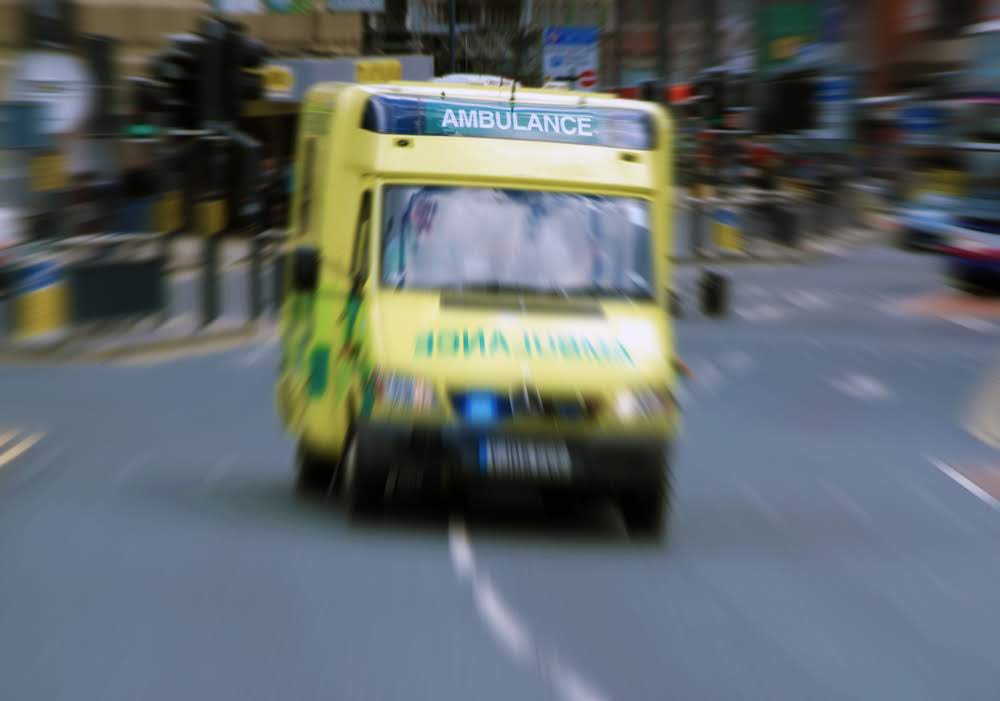In October only two out of 119 hospitals with a major A&E department met the target of ensuring patients wait no more than four hours from the decision to admit until admission: more than 80,000 patients waited more than four hours, 63% higher than a year ago.
Of these, 726 patients waited more than 12 hours (240% higher than in October 2018).
Around one in six of those attending an A&E were not seen, treated and admitted or discharged within 4 hours, described by King’s Fund chief executive Richard Murray as the worst performance since records began, “and this before winter has even started”.
The target to admit, discharge or transfer at least 95% of people within 4 hours of arriving in A&E has not been met since the second quarter of 2014/15. However most of the delays are in the treatment of the more serious “Type 1” A&E attenders: over 99% of minor (type 3) patients were seen within the 4-hour target time in A&E departments in 2018/19, in comparison to just 81.4% in major (type 1) A&E departments.
Embarrassing NHS figures postponed till after polling day
Just 77% of patients had their first definitive treatment for cancer within 62 days of an urgent GP referral in September 2019, down from 78% at the end of September 2018, and well short of the operational standard that specifies that 85% of patients should be treated within this time.
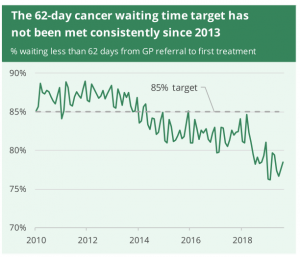
Delays in discharging patients after their treatment amounted to 149,384 days in September 2019, an increase of 3% from September last year. These days equate to a daily average of 4,979 beds (equivalent of ten general hospitals) occupied by delayed patients in September 2019 compared with 4,820 last year.
The main reason for delays in September 2019 was “Patients Awaiting Care Package in Own Home”, which accounted for 21% of all delays. Half of the delays for this reason are attributable to Social Care, 30% to NHS and 20% to both.
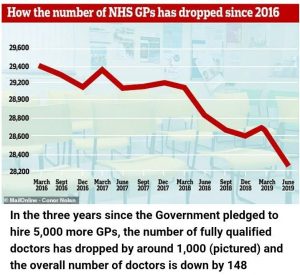
Social care has suffered real-terms cuts, with government spending on adult social care in England cut from an average of £346 per person in 2010/11 to £324 in 2017/18.
Death toll from social care cuts: over 3 people per hour
85% of patients on the waiting list for elective treatment at the end of September 2019 had been waiting less than 18 weeks, well short of the 92% standard, and down from the 86.7% in September 2018: the number of patients waiting over 18 weeks rose 22% from 550,000 to 672,000.
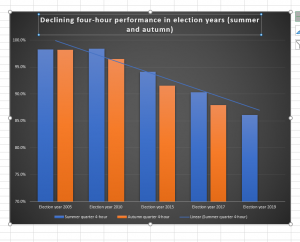
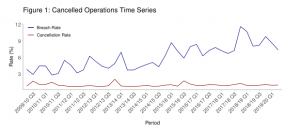
The Health Foundation points out that people are being added to the elective waiting list faster than the NHS can treat them. “The total number of people on the waiting list is now over 4.5 million, having grown steadily from 2.5 million in April 2010.”
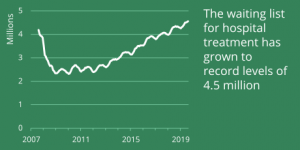
While numbers of diagnostic tests have increased over the past year, 3.8% of the patients waiting for one of the 15 key diagnostic tests at the end of September 2019 had been waiting six weeks or longer from referral, compared with the operational standard of less than 1%.
Dear Reader,
If you like our content please support our campaigning journalism to protect health care for all.
Our goal is to inform people, hold our politicians to account and help to build change through evidence based ideas.
Everyone should have access to comprehensive healthcare, but our NHS needs support. You can help us to continue to counter bad policy, battle neglect of the NHS and correct dangerous mis-infomation.
Supporters of the NHS are crucial in sustaining our health service and with your help we will be able to engage more people in securing its future.
Please donate to help support our campaigning NHS research and journalism.

